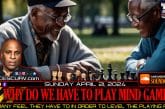When I was young I remember listening to my elders promulgating that knowledge is power.
Learn, my child, they used to say, for knowledge makes you smart and smart people have a chance to thrive in this world we inhabit.
Their words sounded vague to my callow ears. What is the knowledge they are referring to? Knowledge of mathematics? Knowledge of physics? Knowledge of languages? Street knowledge? Knowledge of human relationships?
Unable to properly fathom their equivocal advice, I grew up to become a generalist. That is a person with a wide array of useful knowledge. Although I did complete my studies in Electrical Engineering and Business, I didn’t choose to specialize in them. I preferred to use them as a stepping-stone to acquire more knowledge. Knowledge that could help me achieve generalist status.
I did that hoping that a generalist reality can grant me access to a huge network of information that will allow me to view reality from a holistic perspective. For I thought that this was the secret to decoding the hidden message of the “knowledge is power” adage. I thought that this was my only good chance of finally understanding.
I can’t really say that I regret my decision. The generalist pathway urges you to delve into different topics and, eventually, try to develop an interdisciplinary approach when it comes to thinking. I started to think in systems and this mode of cognition led me to deeper states of consciousness that challenged the way I interpreted the world. I became more aware of my own existence, my own limitations, and my own potential.
And that’s when it dawned on me.
The elders were right, but not right enough.
In their quest for knowledge, bewildered by its intimidating nature, they ignored the true essence of what knowledge’s purpose actually is.
Knowledge is indeed power. But the path from knowledge to power is not immediate. There is a succession of steps one needs to follow and it could be summarized in the following sequence:
Knowledge -> Awareness -> Control -> Power
Knowledge breeds awareness. That is the consumption of knowledge leads to a collection of wisdom nuggets that, when properly construed, can raise awareness. Awareness is the ability of the individual to make sense of oneself and, consequently, of the world around him. Once this process manifests itself, one is able to transition from a state of cluelessness and incompetence to a state of control and power. For power transpires when you focus on things you can control. And you can control only what you can understand – what you are aware of.
So the imperative word here is not knowledge, but awareness.
Allowing oneself to embrace this word and immerse into the totality of its nucleus is akin to allowing oneself to become totally free. For awareness has always been the key to a life defined by clarity, intent, and cohesion.
Apropos, there is a path that one needs to follow in order to properly grasp what constitutes awareness and where its real potency lies. And this path I endeavor to lay out today.
In the following paragraphs, I will examine 5 stages one needs to cover in order to develop extreme self-awareness. For awareness does not develop overnight. It is a gradually evolving process that is predicated upon the willingness of the individual to battle through the obstacles encountered in every stage.
DEVELOPING SELF AWARENESS
STAGE 1: FEELING CLUELESS
The major issue young people face and have always been facing is cluelessness and incompetence. Empirical investigation has led me to believe that the reason for that is twofold and has little to do with intelligence or experience.
The two major forces that enforce this circumstance are the education system and the development of our frontal cortex.
Education system
A brief history of how modern education came about (you can read the detailed summary here) reveals that from the 17th century onwards the purpose of school was to create better workers, not better humans. Employers in industry viewed school as a means to teach future employees the rules of punctuality, following directions, tolerance for long hours of tedious work, and a minimal ability to read and write. On top of that, as nations became more centralized, national leaders saw a great chance in schooling to lay the foundations for the facilitation of future patriots and soldiers.
In essence, the school was not a place where the child could enjoy a holistic education and develop a healthy personality. It was more like a prison where he or she would, eventually, lose his or her identity, become a virtual nonentity and blend into the uniformity of collectivism.
Development of frontal cortex
Prolific biologist Robert Sapolsky revealed in one of his lectures something groundbreaking: The frontal cortex is the last part of the brain to fully develop.
On average, the frontal cortex manages to completely mature at the age of 25. This astonishing finding postulates two things:
Frontal cortex is predominantly sculpted by environment and is least constrained by genes. Which apparently suggests that it is quite malleable and its development hugely relies on the environment one chooses to occupy.
Young people don’t have the capacity to totally benefit from most of its uses, which include planning complex cognitive behavior, personality expression, decision making, and moderating social behavior, until their mid 20s.
If we take into account these two factors and combine them with the proclivity of humans to, usually, choose the path of least resistance when it comes to action taking, we find ourselves in a very unfavorable situation. Developing self awareness under such circumstances becomes a far-fetched goal. We end up with a huge amount of the population feeling not only clueless about who they are but also lacking the necessary context that would empower them to discover their individual constitution.
Nonetheless, the first stage is possible to overcome, firstly if the individual understands his or her limitations and secondly by methodically accruing knowledge relevant to the alleviation of these limitations.
STAGE 2: UNDERSTAND YOURSELF
The prominent maxim “know thyself” has been echoing through history since its first usage by Plato in his dialogues. There are at least six instances during which Plato employs the maxim, and in every one of them he does so in order to stress out the importance of self-discovery in the development of the individual.
Although the context in each instance is different, the rationale remains the same. A self-aware individual is a conscious individual. Individuals who can’t partake in the process of self-exploration will systematically fall victim to their own lack of awareness and to the ramifications that such a state begets. Some of the ramifications include:
Confusion due to a lack of intent behind decision-making.
Frustration due to a lack of understanding why certain calamities eventuate in their lives.
Hyperbolic emotional reactions when certain needs remain unmet.
Manipulation by external agents that will try to present themselves as saviors and take advantage of the predicament the individual faces.
Essentially, a lack of self-awareness is the main source of dogmatism in society today. Sam Harris, during one of his podcasts, while examining why dogmatism can ruin a person’s life, stated beautifully:
“The state of being dogmatic is the state of believing in things strongly, despite an absence of evidence or even in the face of counter evidence. That is the state of having no error-correcting mechanisms in your worldview. You’re simply not available to reality and you will continually bump into hard objects wherever you go.”
Humans will always seek to belong and this lust for tribalism can often yield friction within society. Most people who cling to certain (usually extreme) ideologies do so because they haven’t sorted themselves out. The absence of a strong individual identity destabilizes the substrate of their being and they are constantly in the look for more stable worlds to grab onto. These stable worlds are often dogmatic worlds that reject certain aspects of reality in an attempt to deal successfully with its innately chaotic nature. Religions, political movements, cults, extremist groups, all fall in that category and are there to remind us what a lack of self-awareness can engender.
In a way, people who belong in these groups are manifestations of a person’s inability to face the concept of the shadow as Carl Jung put it forth.
The shadow is the unknown ‘‘dark side’’ of our personality. Dark because it is very obscure and also because we need to dig very deep within our psyche in order to discover it. It is a conglomeration of all our fears, desires and impulses like sexual lust, power strivings, selfishness, greed, envy, anger or rage, and due to its unenlightened nature it operates in a subconscious level. A person can never reach the state of self-actualization if they haven’t managed to face the shadow until they can understand it, deal with it, and eventually internalize it.
Plato also pointed out that understanding ‘thyself,’ would also result to a greater understanding of the nature of a human being. Syllogistically, understanding oneself would enable a person to form an understanding of others as a result. Which is our next stage.
STAGE 3: UNDERSTAND SOCIAL PATTERNS
The complexity of our social fabric is an omnipresent conundrum across the span of our lives. We are egotistical creatures that perpetually try to balance individuality with togetherness. Usually, we fail dramatically in that attempt but it doesn’t always need to be that way.
The way a person forms their understanding of social dynamics is fostered during childhood and depends largely on the way the upbringing functions. Within the household, a child can get a glimpse of how real society operates and adopt certain characteristics that will help him or her transition smoothly from the microcosm of his or her family to the wilderness of the real world.
Therein the child develops an intuitive ability to interact and cooperate with others. Hence most people make judgments about others based on intuition. Intuition is indeed a powerful skill but alone is not enough. It can offer a rough understanding of social patterns, but if you want to understand the mechanics deeply, you need to enhance your social repertoire with more skills.
In that respect, I am going to briefly touch upon three major areas one needs to be aware of:
Empathy
Our perception is usually confined within the limits that our ego dictates. We are raised to think individually and not syllogistically. That process seriously hinders our capacity to understand and cooperate with fellow humans and our ability to form mutually beneficial connections suffers dramatically.
Empathy is the ability to understand and share the feelings of another. It is the process that leads to a complete re-engineering of a person’s worldview since it can offer them a completely new perspective on life.
Cultivating empathy is the first step into unweaving the mysterious entanglement that encompasses our social life.
Power dynamics
Humans are evolved primates with an extremely sophisticated set of cognitive tools. The way, however, our social structures are formed rely more on power rather than sophistication. For years we have attempted to evolve our social edifice from a dominance hierarchy to a more egalitarian constitution. For years we have failed miserably to do so.
That reality is a result of an eclectic amalgamation of reasons such as cultural discrepancies, environmental influences, intelligence, tribalism, nepotism and a general lack of affinity towards forming collective views. It seems that, on average, our primitive mind tends to dominate our more rational one and the future doesn’t look much promising in that respect.
One needs to be aware of these truths and to exercise his or her capacity to deal with them consistently in order to stay sane and competent in our power-oriented environment.
Influence/Persuasion
The reason our species thrived and managed to reach this prosperous time in history is predicated upon our ability to cooperate and establish laws that will allow stability to prevail within our societies. These laws would have never existed in the first place if it weren’t for the aptness of certain individuals to influence and persuade others to follow their ideas and causes.
Influence and persuasion are two of the most ancient human arts and have shaped our social makeup like no others. Yet, not so many seem to pay close attention to them. While most people emphasize the significance of STEM disciplines or the necessity of the humanities, few recognize the level of importance influence and persuasion has in transforming the world around us.
A heightened awareness cannot manifest itself with the absence of basic knowledge in influence and persuasion. Not only does this knowledge allow the individual to see behind the scenes of reality, it also offers him or her a competitive advantage in dealing with the complexity of human nature. Such knowledge shouldn’t be clouded by neglect.
STAGE 4: AFRAID YOU’LL GO CRAZY
Moving through the stages of awareness mastery is a precarious process. One will inevitably reach a point where reality will become very different than before. The interpretation of patterns both within oneself and within others can result to an over-analytical mode of thinking and this over-analysis can, more often than not, be too much to handle.
People transform from random entities that interact with you in an aimless fashion into intricate structures that reveal all their intentions and hidden agendas just by the way they move, talk, and operate. Reality gets examined to the point of madness.
This idea gained instant currency when I stumbled upon the writings of the infamous novelist László Krasznahorkai. This prodigious figure showcased his quintessential mind when he introduced us to a writing style so dense and tireless that felt like the ideal analogy to an over-analytical interpretation of the world.
I have been there many times. I assume that most of you have been there too. Your mind is trying to navigate your thoughts through this labyrinth of madness and you feel hopeless. You are afraid you’ll go crazy.
Humans are not designed for this. We progressed from a state of security and simplicity to a state of randomness and complexity quite abruptly. Technology allowed us to connect with each other and stretch our cognitive limits in unprecedented ways. We thought that we would improve every aspect of our experience, but in reality we started to lose our minds.
Once you discern that imbroglio, be gentle with yourself. Don’t fight it. Don’t get mad. Don’t despair. Don’t worry about feeling uncomfortable. Instead, understand that feeling uncomfortable should be viewed as a virtue, not a hindrance.
The key here is to realize the necessity of this stage. View it the same way you view adversity and growth since adversity is a necessary ingredient of growth.
Allow it to train you and toughen your mental resilience. For it probably constitutes the most imperative stepping stone to reaching what one so desperately desires – extreme self-awareness and extreme self-ownership
STAGE 5: ACCEPT HUMAN NATURE AND CONTROL YOUR NARRATIVE
Chaos, randomness, entropy, and serendipity are all elements of disorder that engulf the human experience.
When dealing with them, people can be easily categorized into two groups: The ones that despair and the ones that accept.
The first group will constantly find reasons to complain, lament and allow reality to devastate them.
The second group will accept reality as it is, understand what they can control and eventually come up with a strategy.
Human nature is what it is. One cannot change the world as a whole, but one can definitely change his or her world. That’s the power of self-awareness and that’s what the final stage of awareness mastery feels like.
During that stage, one should consider seriously the triptych of pragmatism, antifragility, and search for meaning.
Pragmatism allows us to see and speak the truth. We stop being delusional and we adopt a proactive stance towards challenging quandaries. The absurdity of this world can be dealt with only when we stop idolizing circumstances and instead adapt to the requirements every circumstance demands.
Antifragility is the word that was missing from our vocabulary since the closest we could get in describing things that withstand pressure is robustness. When Nassim Taleb introduced us to the term antifragile, our whole experience shifted gears.
Finally, a lack of meaning can lead to nihilism and although nihilism can be useful in certain cases, excessive adherence to it can lead to chaos. Meaning brings structure and structure is the only antidote to the deleterious effects of chaos.
Internalizing this triptych leads to the completion of the last stage of awareness mastery. Completing that stage can lead to confidence and panache oozing out of every moment of your life.
That’s probably what controlling your own narrative feels like.
That’s probably what freedom feels like.
IN CLOSING
When I discovered the five stages to awareness mastery, it felt like a momentary vision, one of profound effect; and one to which my first response was to run off to tell somebody about it.
This article is, perhaps, a microcosm of my pursuit of self-awareness – it represents the vital need to confess my own unique experience and share it, in all its immediacy, with you.
CLICK HERE TO READ THE ORIGINAL ARTICLE














